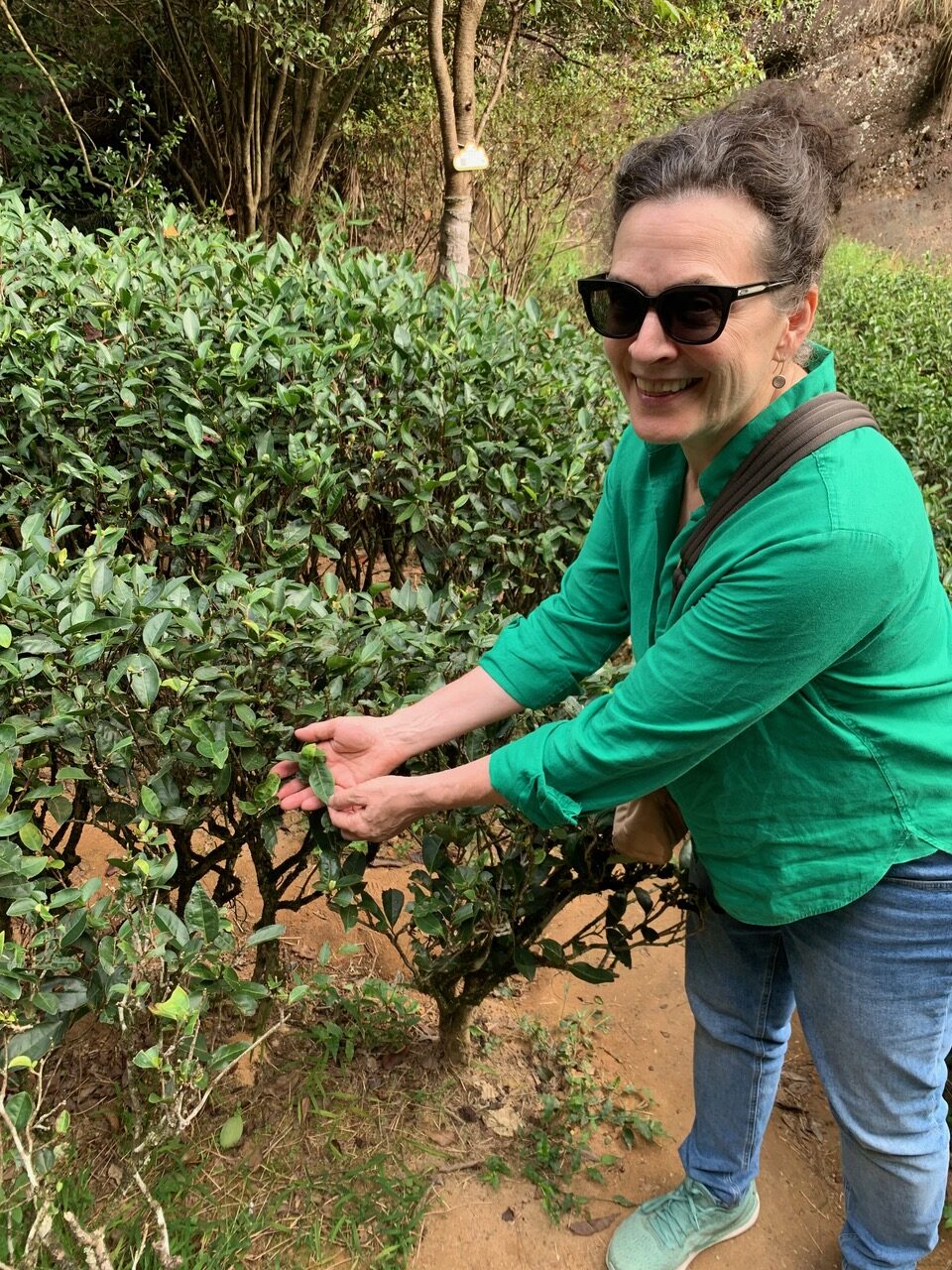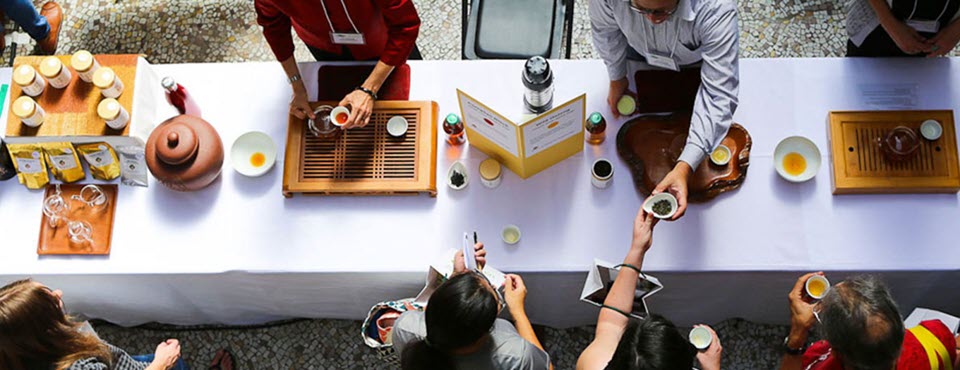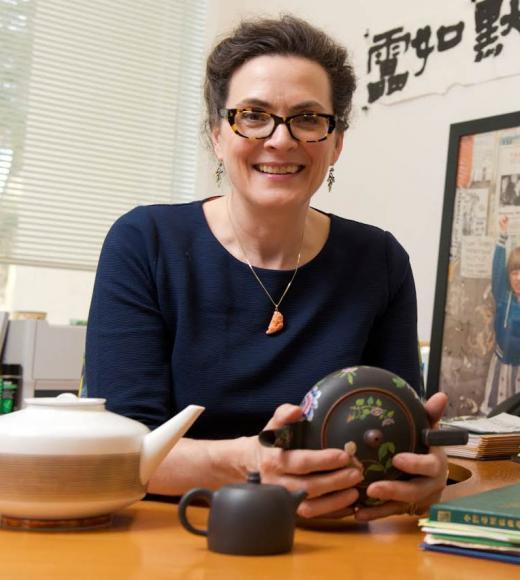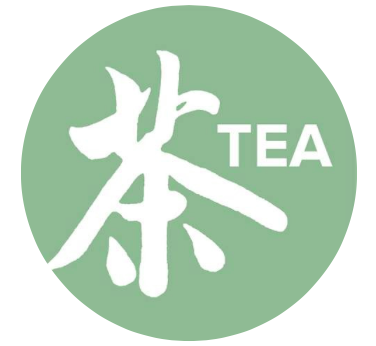Episode 200
Hundreds of tea professionals, educators, and enthusiasts will travel from around the world to attend the UC Davis Global Tea Institute’s 10th Anniversary colloquium on January 30 at UC Davis. This year’s theme is Tea and Peace: Bringing Communities Together.
Thursday, January 30, 2025
9 am – 5 pm PST
UC Davis Conference Center
550 Alumni Lane, Davis, CA 95616 USA
Powered by RedCircle
Spotlight
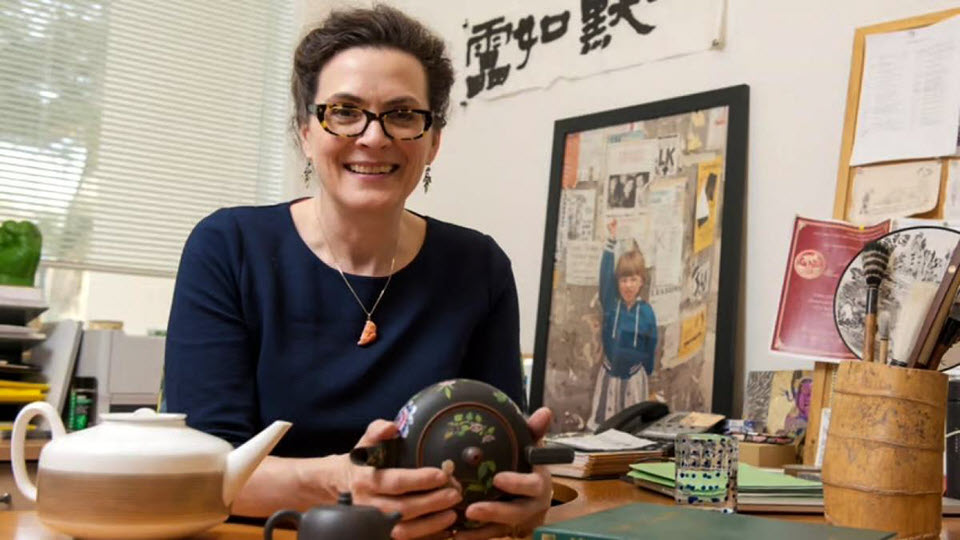
Listen to her story
GTI Connects Tea Communities Globally
By Dan Bolton
Joining us today is Professor Katharine Burnett, an expert in East Asian Studies and the art and cultural history of China. Katharine is the founder and director of the UC Davis Global Tea Institute (GTI). She describes how, in 2012, their mutual fascination with tea brought together a research cluster of faculty and librarians to establish a group that would become the institute and organize its first colloquium. This event brought GTI to the attention of the tea industry, which immediately responded with generous support. The collaboration inspired an innovative global educational hub offering advanced studies, continuing education leading to professional certifications, and a new book series, Global Tea Studies, by De Gruyter Brill Publishing. Long-term plans include constructing an on-campus tea center equipped with a sensory theater, processing center, exhibition hall, classrooms, and space for public display of tea art and cultural materials.
BIO: Katharine Burnett is a professor of art history and a 2023 Public Scholarship and Engagement Fellow who co-chairs the University’s Department of Art and Art History. She is also a Faculty Affiliate of the East Asian Studies Program and frequently travels to the tea lands. She holds degrees from the University of Michigan and Wellesley College and has worked at the University of California, Davis, for 27 years.
Dan: Katharine, what was your inspiration for establishing the institute?
Katharine: Teapots! It was Chinese teapots and their fascinating, unique shapes that first made me interested in tea.
Decades ago, while writing my dissertation, I started paying close attention to a new burst of originality during the late Ming Dynasty (1368-1644). In terms of aesthetics, the way that the artists expressed themselves was completely new and different than before, in a way that might be compared to how cubism differed from the naturalism of its previous era; it just went above and beyond anything done previously. By reading the early texts, I discovered that originality was the paradigmatic value for art of the time. I was surprised to discover that one of the leading theorists was a friend of the foremost potter in Yixing. I recall saying, I’ve got to write an article about this.
Years passed, and I didn’t write about it because tea is not a big deal in American universities. Scholars of course have written about tea since the Tang Dynasty. But I had other concerns, including getting a job, getting tenure, and writing my first book. Time passes, but it was still in the back of my mind.
In 2012, I was named director of the East Asian Studies Program on campus, and I was looking for ways to give this program a higher profile on campus because we have an outstanding faculty. Our wonderful librarian, Axel Borg, approached me and said, “You know, you got to meet this guy, Darrell Corti. He has a major grocery (Corti Brothers), is a world expert on food and beverages, and he collects Japanese art. You’re the Asianist on campus; he will want to talk to you.
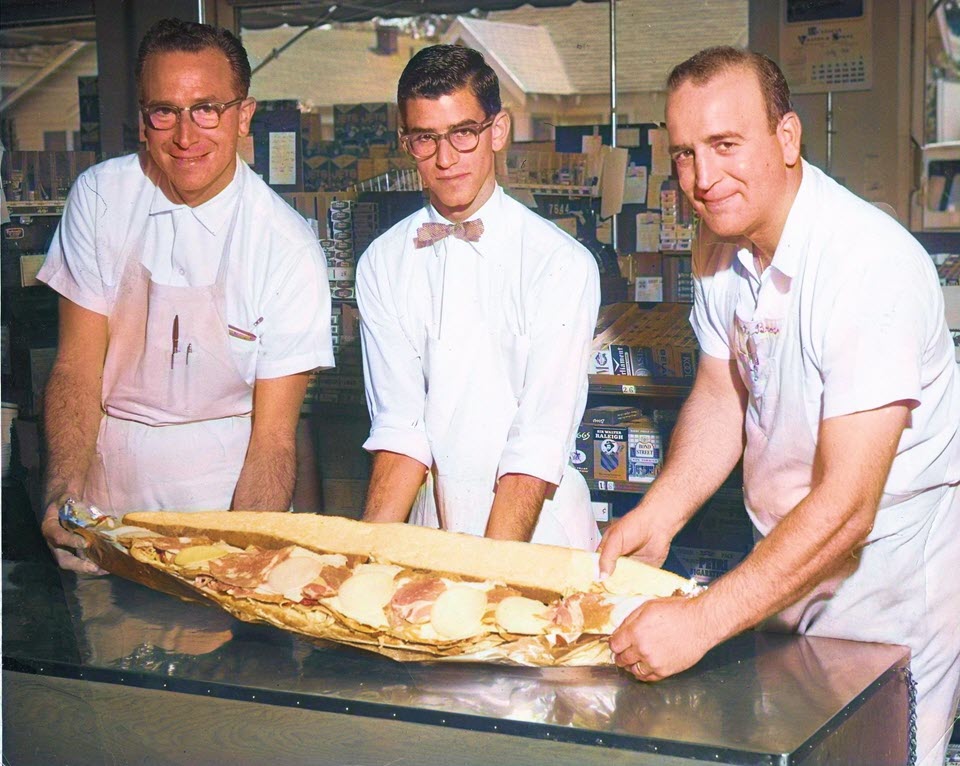
And I’m like, No, he won’t. I do China. He’s interested in Japan. He’s not going to want to talk to me. But thank you. And Axel kept saying, No, you gotta talk to him.
Okay, so we arranged to have lunch, and Darrell said, ‘Do you want to go to this fancy restaurant or dim sum?’ I’m like, Hmm, let’s find out where Darrell would go for dim sum because he’s this internationally acclaimed food expert. He’s an advisor to the Smithsonian and the Robert Mondavi Institute for Wine and Food Studies on campus. I mean, he’s an amazing guy. The fancy restaurant is a no-brainer; obviously that’s going to be great. But what would he choose for dim sum?
I learned that Darrell collects Japanese incense burners (which are part of the Japanese tea ceremony), so I brought a few of the incense burners I’d gotten in China. Some of them were in the shape of teapots. I brought some little tea pots as well. We’re sitting there, frankly having a desultory conversation because, as I said, Darrell was not going to be interested in me, a Sinophile, when Darrell suddenly looks down and sees these things on the table. And he picks up a little teapot. He asks, where did these come from? I say, I brought them because we had been talking about incense burners and thought you might find them interesting, blah, blah, blah. Darrell looks at me and says emphatically, “Katharine, What I don’t understand is why doesn’t UC Davis study tea?”
Well, wow. Why doesn’t UC Davis study tea? That is a great question. So, I talked about the article I had intended to write – at this point, for two decades. I explained that we had all these great people we could bring together to study tea: Axel was there at lunch, and he was the librarian at the College of Agriculture and Environmental Studies (now retired). He was aware of the science people on campus who would be interested in tea. I knew the East Asian studies people. We could easily bring them together.
I discovered a grant opportunity on campus, so I said, Let’s get everyone together, write this grant, and propose studying tea. So, we created the All Things Tea faculty research cluster. We applied for the funding grant but got nothing, nothing! Later, I talked to one of the reviewers, and from her remarks, I learned that effectively, we were too ahead of the curve. We were just way too ahead of the curve.
But Darrell—and I really want to give him lots of credit here—wouldn’t let me stop. He introduced me to Wing Chi IP, whom you know.
Dan: Wing-chi Ip is a brilliant scholar, tea artist, collector, and owner of the LockCha Tea House and Museum, which he founded in 1991 in Hong Kong Park.
Katharine: He invited me to speak about our ideas for tea studies at UC Davis at the Xiamen International Tea Fair in Fujian in 2014. So I go to Xiamen and give my little spiel: This is what we’re doing at UC Davis. This is what we’re proposing. And I figured nobody would care because why would they? They’re mostly tea traders in Asia, why would they care about what a bunch of academics were doing in the US? I was on a panel with great speakers, but surprisingly, almost all the questions afterward were for me.
Whoa. People were saying, This is great. They had all these ideas and thought this was fabulous. And then they said, Well, what will you do when you go home? Well, I said, I guess I’m going to talk to my chancellor. The people there were so enthusiastic that when I returned to the US, I pursued the concept more avidly with my administration.
Our Development officers took me under their wing and, for a year, took me all around campus to, frankly, all the departments that I’d already talked to on behalf of the All Things Tea research cluster, trying to get broad campus buy-in for the concept, including Grounds Planning and, you know, Facilities Management and all these things. But now, with Development next to me, they’re taking me even more seriously. And after full a year of this, the Development folks said, now you can talk to the Office of the Provost. We met. The Provost was both dubious (a Tea Studies program had never been done before after all), yet enthusiastic. In combination with my various Deans, they offered three years of startup money, and said, Let’s see what you can do! That gave us enough money to start planning and organizing the colloquia and a strategic plan to advance the idea on campus as the Global Tea Initiative for the Study of Tea Culture and Science.
In 2014, we had done a test run of a pair of talks with Wing-chi Ip and the tea scholar Steven Owyoung, and instead of the 40 people or so that I expected, 200 knowledgeable people, industry experts, and aficionados both showed up. It was phenomenal. So when we held GTI’s first colloquium, I knew we would attract a similar audience. But 400 people registered from across campus, across the region, and the Bay Area, flooding in. So that’s 2016, our first colloquium. The topic was All Things Tea
By 2017-18, we had the beginnings of our Tea Advisory Committee and advisory board, which is a philanthropic board. This is an incredibly supportive group. The first members included representatives of International Tea Importers (ITI) QTrade Teas & Herbs, Ito En, Harney & Sons, and Mighty Leaf/Peets.
The board has since expanded to include Crystal Geyser/Tejava, Bei Teahouse (China), Finlays (England and Rhode Island, US), HTH Hamburger Teehandel (Germany), and DAVIDsTEA (Canada).
The advisory group has given me the operating funds to run GTI from year to year and to organize the colloquia and bring in the speakers and host a few on-campus events. It’s such a joy because the people in the tea industry are so lovely. Ostensibly, they are competitors, but they work so nicely together; they all recognize that GTI is important and can ultimately benefit the industry. People in the industry would approach me and say, Katharine, we’ve been waiting for this for 30 years. We’ve been waiting for four decades. UC Davis is perfect because its mission is to educate and share knowledge, and having a university like UC Davis bring serious attention to tea is a game changer.
UC Davis doesn’t care if it’s green or black tea or where it was from—whether it’s from China, Japan, India, Sri Lanka, Africa, or, you know, Argentina or Colombia. We’re open to studying it all. We have the expertise of brilliant faculty in over 100 departments who can approach the study of tea in important and different ways, and share this research with our students, and spur more studies on tea.
It was wonderful to receive such a warm welcome from the tea industry and have them on board. Now, our industry advisory comprises about nine national and international companies. We hope to continue to expand because we appreciate their sage advice.
The Global Tea Institute for the Study of Tea Culture and Science promotes evidence-based knowledge about tea, the most consumed prepared beverage in the world. GTI is the first and only entity to promote research and teaching in agriculture, health, science, humanities, social science, and industry, and from a global perspective.
UC Davis College of Letters and Science
Dan: Will you talk about the hub concept you’ve championed? The institute has developed close relations with several tea-friendly educational institutions. They share tea knowledge in a very sophisticated way with UC Davis, disseminating the curriculum so that it can be taught face-to-face in classrooms 10,000 miles apart.
Katharine: So, that’s a great question. First, before I answer, I will do a little cheerleading for Davis. The reason why UC Davis is the perfect place, right time, right place, and we just got lucky is that not only is it a leader in agricultural studies, internationally, number one in nutrition studies, and number one or top-ranked in so many other different fields, including things that don’t get ranked by the standard sources.
We have over 100 undergraduate majors. We have over 100 graduate programs, plus four colleges and six professional schools. We’re the world leader in Ag and Environmental Studies and Nutrition, and we’ve been a leader in wine and beer studies forever.
UC Davis is the most comprehensive of all the 10 University of California campuses, and our mission is to teach, research, and spread knowledge through teaching and publication. So, UC Davis is the perfect setup. We believe in collaboration, so I’ve been actively talking to other universities around the world that have tea programs, and they want to collaborate. You still must find somebody to do the actual collaboration, but at least we are building bridges to enable these collaborations to take place, and that’s really important.
Through GTI’s annual colloquia and other soft initiatives, we’re spreading out. Even though we’re very young, we’ve established a name, a brand, and a reputation for excellence.
We launched a professional tea certificate program, the UC Davis GTI Professional Tea Certificate Program, to the public for the first time last year. A new offering of this will be held in 2025. We’re still working out some details, so we don’t have a start date yet, but it is going to happen. The program was developed at the industry’s request, with industry members largely giving the individual lectures as part of this short course.
For our students, the last seven years, we’ve offered a course to our undergraduates, mainly as a first-year seminar that is capped at 19 first-years and transfer students who are new to campus. It’s a nice way to make them comfortable on our campus because it’s big. We have about 41,000 students now. Last year, we ran the course as a large enrollment class, again, co-taught across the disciplines.
This year, we’re beginning to incentivize faculty to create enough approved courses so that we can develop an undergraduate degree-granting program in Global Tea Studies. Faculty can use their incentive awards to buy out their teaching of one course while they write their tea course. The money actually goes to the department to hire someone to teach their regularly-offered course, but the faculty gets the time to write the course and push it for approvals through the system. We need to develop at least six to ten courses for an undergraduate minor and then, over time, grow the number of courses on offer to be able to create a major in Global Tea Studies.
This is happening on this campus, which means that this will be the first, and as far as I can tell, the only place in the US – or anywhere! – to have a Global Tea Studies degree. It will be an umbrella program that will engage faculty from various Colleges on campus, from the humanities and social sciences, engineering, chem, to agriculture, and nutrition, and more. So, ultimately, whatever department you’re in, you could take a course that could be part of this program,
So that’s in the works. Students for years have been contacting me and saying, I’ve just found out about GTI. Can I come to Davis? I’m like, yep, just get yourself into the system. Once accepted as a UC Davis student, you can work with whatever faculty member in your area of interest to work on tea. While we’re still creating the Global Tea Studies Program, you can create an independent study course or write an honors thesis. Grad students are already working on tea for MA, MFA, and PhD degrees. We have graduate students doing graduate work in tea in all sorts of disciplines. We encourage that.

Dan: Let’s discuss how the GTI colloquia is structured and then get specific about this year’s 10th Anniversary event.
Katharine: One of the things that we felt was important at the outset was to have an engaging event that would showcase tea culture and society, science, health, and the industry. We stumbled on that fairly early on and didn’t realize how phenomenal it was as a concept, but it worked beautifully.
It always makes me sad that we can only do a one-day event because it’s worth a whole week of talks, but nobody has that kind of time. So for our colloquia, we encourage different approaches in the talks for whatever theme we set. Speakers address the theme according to their research interests, so there’s a lot of flexibility. The final effect on the day of the talks is like a kaleidoscope. You get one perspective, and then it shifts a little bit, and you get a new perspective, and then you get a completely different vision of tea, and then it shifts again and again. So, the sum of the whole is far greater than the sum of the individual parts.
The overall effect always leaves me saying, “Wow, that was really inspirational.” The ideas that the speakers convey enable the audience to make connections across disciplines. The presentations are thought-provoking, leading to discussions that range from formal conversations led by speakers to discussions amongst the audience themselves. Networking opportunities for business, our students, and the general public are phenomenal.
I’m really proud that we’ve consistently kept the Colloquia live and in person. Except for the COVID years, when we couldn’t meet on-site, there’s always been this human engagement.
Dan: The speakers you invited this year reinforce the idea that human engagement over tea encourages civilized cultural exchange.
Katharine: Absolutely! Human engagement is key. You can do things by zoom, and we’re grateful for it, like this opportunity to speak to you today. But there’s no substitute for human engagement.
To celebrate our 10th anniversary this year, I wanted us to think really big. And what is bigger than world peace?
Now, I know that we couldn’t enact world peace; that’s a little too ambitious, but we can think about it, and the more we think about it, the better it is for us. So we set the theme of tea and peace, bringing communities together. In the fall, our undergraduate Global Tea Club organized a Sip-in for Peace on the quad (inspired by the work of Babette Donaldson) as a way to advertise GTI and the club activities and also to set the theme from the students’ perspective.
Speakers at this year’s Colloquium include Klaus Lange, professor of food, nutrition, lifestyle and health at University of Regensburg in Germany, also an affiliate professor at the Nara Institute of Science and Technology in Japan; Dr. Juan Fernando Ortiz, neurology resident at Corewell Health West at Michigan State University; Morgan Pitelka, professor of history and Asian Studies at University of North Carolina – Chapel Hill; and Erika Rappaport, professor of history at UC Santa Barbara.
We will record the event and post it on the GTI website. However, because the recordings must be processed for accessibility, they never go up until several months after the event, when most people have forgotten about it. So, we encourage people to attend the event if at all possible.
GTI Collection of Tea Art and Material Culture
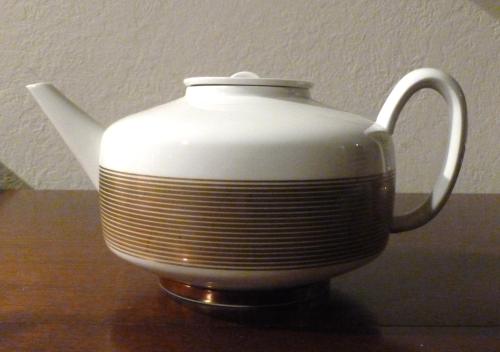
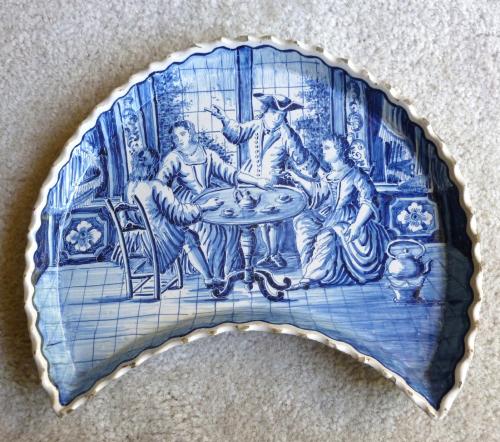
Through generous donations, GTI has developed its collection of art and material culture relating to tea. Currently, the collection comprises Japanese tea ware and ceramics, basketry, paintings, and calligraphy, as well as Chinese, US, and European teapots and teaware.
Throughout the winter quarter, we will hold a mini exhibition of selections from the GTI Collection of Art and Material Culture on the theme of Tea and Peace in the Reading Room of Special “Rare Books” Collections in Shields Library.
Rounding out our year’s events focusing on tea and peace, we will host some remarkable artists, Aaron Hughes and Amber Ginsberg, in the spring to exhibit and talk about their Tea and Peace project. The talk will be held at 3 pm on April 23 at the Mannetti Shrem Museum of Art. It will be free, live, and open to the public.
The Mannetti Shrem Museum of Art will also be the site of their exhibition, along with another selection of art from the GTI Collection. This will run throughout UCD’s Spring Quarter.
This year, there will be lots of things to see and think about. I hope people will think about how tea can bring us peace individually, whether it’s just a cup at home or soothes you in the moment. Or you share tea with a friend. That communication between friends is so soothing, inspiring, and helpful. Or more broadly, if you share tea among industry or business or government agencies or between nations, because, you know, we’re people first.
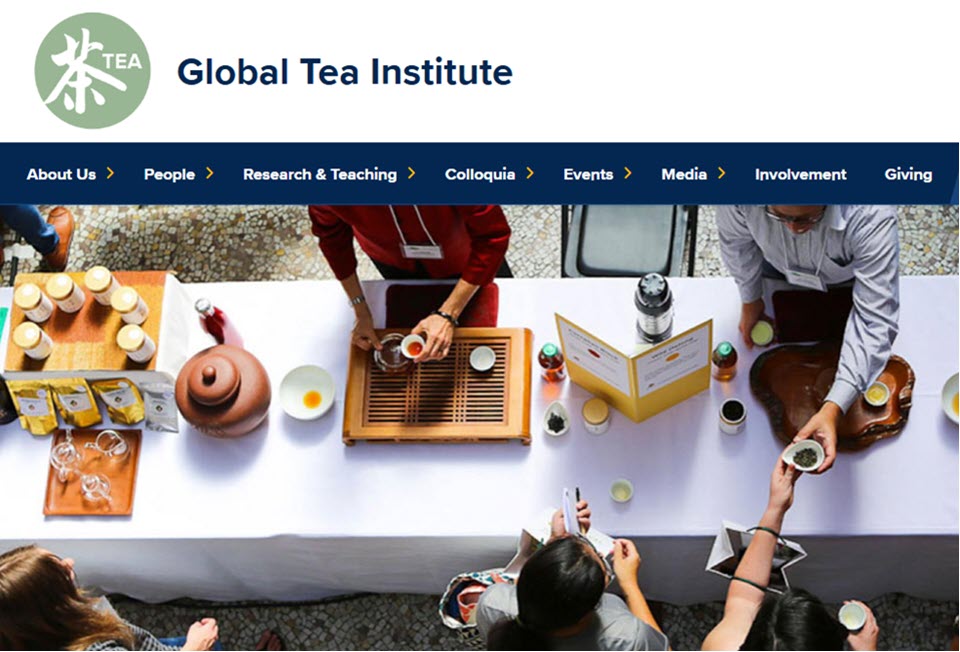
Expanding GTI’s Unique Mission
The Global Tea Initiative promotes research and teaching in agriculture, health, science, humanities, social science, and industry from a global perspective. Its more than 40 members include faculty, staff, librarians, and student members working on tea studies. GTI also supports the Global Tea Club (an official ASUCD student organization).
Global Tea Studies
This book series, launched with De Gruyter Brill, will publish scholarly monographs on a single subject or anthologies that may cross disciplines on a shared theme. It will also consider volumes by experts outside of academia that aficionados will cherish. No book series or journal currently provides a fulcrum for this type of work.
Katharine described, “Something new that I’m very, very, very excited to announce is that we founded a book series.”
It’s the Global Tea Studies book series to be published by Brill (founded in 1683) in Leiden, the Netherlands. Brill is an international book publisher and a very well-regarded academic publisher. Two manuscripts have already been submitted for this series. The press expects to publish at least two books a year on tea. They’ve already published many important books on tea. Even before I approached them with a proposal, they were already thinking about the need for a book series on tea. I’m just finalizing the editorial board membership, but I will serve as the editor-in-chief for this. Much to my surprise, I discovered that no other book series in the world focused on tea. Our book series will be open to work in any discipline. If you want to write a monograph or an edited volume with multiple chapters by different authors, great, whatever. All manuscripts will be peer-reviewed. So the books will be scholarly and they’ve got to be good. But it’s exciting to see. As you say, tea has been written about for 1000s of years; people have been trying to explain tea since the Tang Dynasty.
Building Endowment
Dan: Now that you’ve succeeded over 10 years in creating a solid foundation and brought it to this level, what do you see for the future?
Katharine: Two things; first, other campuses will pick up on this and start to organize concerted efforts for tea studies. This is already happening. I’ve been working with the University of Virginia on a tea conference, a Tea Forum, in 2026. It will not be as big as a GTI event, but it’s still happening. UVA heard about GTI and invited me to come to campus to speak and meet with various faculty members. And they said, “Hey, we could do something like this.” And it went through East Asian Studies. Somebody in art history and East Asian studies there, my peer on that campus, got it funded.
We’ve been collaborating with a group of about six campuses, led by Louisiana State University, to apply for a significant research grant supporting advanced tea science research studies. Whether we get the funding or not, this is a major endeavor and advancement for tea studies in the US.
Every campus has different kinds of strengths, and that’s fine. Other campuses will be able to do various things. We want that kind of diversity, so I think we’ll see more of that kind of thing.
Second, for UC Davis and the GTI specifically, we are seeking endowment funds for at least one professorship in every one of our colleges and professional schools. Endowed professorships will encourage new ideas and perspectives in research and teaching and encourage students to research and teach tea. Endowed professorships will bring outstanding faculty to our campus and retain them to our campus. That kind of position gives a visionary faculty member significant clout and the ability to develop more things for our campus, enhance collaborative works off campus, and spread the word about the importance of tea studies nationally and internationally.
I am so grateful to the Shah family, which runs International Tea Importers. They have given us a pledge to provide the first endowment for GTI. When fully funded, this will ultimately finance a directorship for GTI, enabling security for GTI and enhancing the Director’s ability to advance GTI’s mission.
Finally, we need a GTI building. We don’t have a building yet. Since 2012, when I first talked to campus and grounds planning, they said, “We know exactly where you need to be located: in the high-rent district of campus near the RMI building, near the performance hall, near the Manetti Shrem Museum, near the Conference Center, near the Gorman Museum, all of that. That’s where you need to go.” I agree!
A piece of flat, open land is waiting for our building. When built, people will see it as they drive past on the expressway going east to west from Lake Tahoe or Chicago to San Francisco in the Bay Area.
The Global Tea Institute should have a dedicated sensory theater, processing facility, exhibition space, conference space, and meditation space that would extend into our Arboretum and Gardens and a Chinese or Japanese-style stroll garden. It should also provide functional space, a tea house for teas from around the world, and a bookshop with tea supplies. All that stuff is ready to happen. We just need the funding. One person doesn’t have to give all the money; it can be donated in parts. But if we had those endowments for professorships and building, GTI would be set up for perpetuity.
Sign up to receive Tea Biz weekly in your inbox.
- Photos courtesy Global Tea Institute unless otherwise noted.

